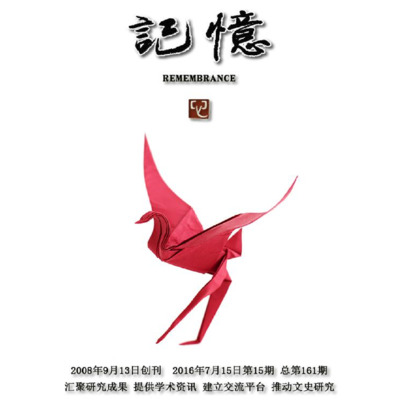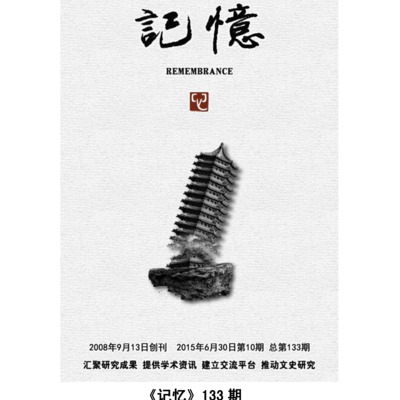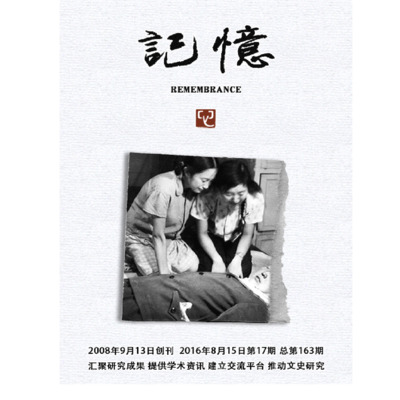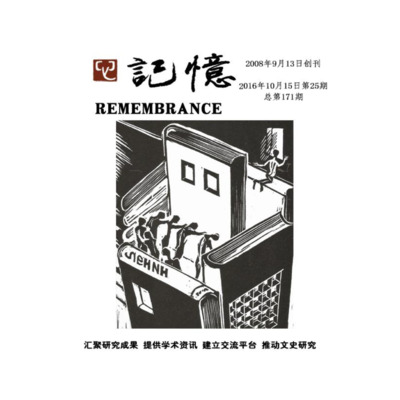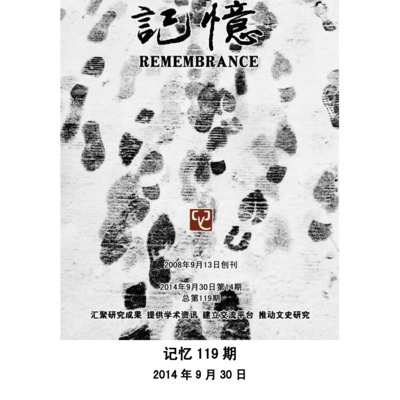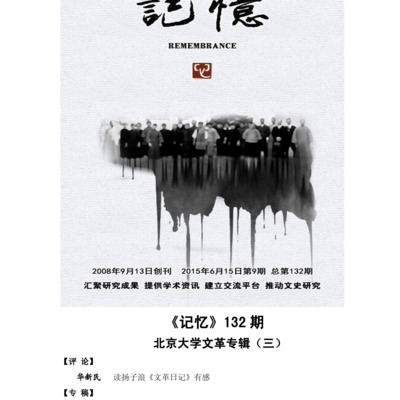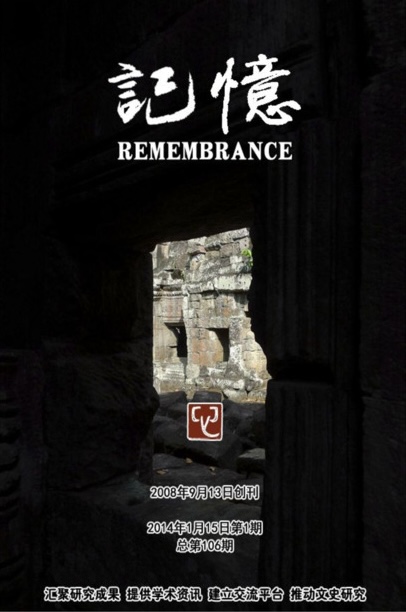
Remembrance
Remembrance is arguably the most important journal of alternative history in the history of the People's Republic. Founded in 2008, it has published more than 250 issues, all of which are held by the China Unofficial Archive.
The issue we chose for the highlight issue number 112 from April 30, 2014. It deals with one of the most controversial episodes of the past decade, an effort at an apology by some of the women involved in the killing of the school teacher Bian Zhongyun. Bian's killing is one of the most famous incidents in the Cultural Revolution, commemorated by the independent film director Hu Jie in his classic film <i>Though I Am Gone</i> (also held in the archive, and among our Highlights). One of the then-school children widely seen as being responsible for Bian's killing was Song Binbin, who soon afterwards was honored by Mao on the rostrum at Tiananmen. Years later, in 2014, Song gave an apology for her role in Bian's killing. Although denying direct responsibility, she said that she and the other girls in the school didn't stop the other students from torturing Bian to death and thus bear responsibility.
In this issue, Song's apology is analyzed on page 19 by one of the founders of Remembrance, who wrote the article under the pseudonym Qi Zhi. On page 3, one of Song's friends, Ye Weili, gives a long account of the day when Bian was killed. Other authors in the issue also chime in with their analyses of the events, the adequacy of Song's apology, and who ultimately bore responsibility for Bian's death–the girls who turned on their teacher, or the system that raised and encouraged such barbaric behavior?

Yanhuang Chunqiu
This magazine was one of most important alternative history journals. It was founded in 1991 by a liberal faction in the CCP, with the help of people such as Xiao Ke, a general in the PLA, and Du Daozheng, a Chinese journalist who once served as head of Guangming Daily and the head of the National Press and Publications Administration of China. It attracted the support of other liberal CCP members, such as Xi Zhongxun, the father of Xi Jinping, and for many years its chief editor was the famous Chinese journalist Yang Jisheng.
The journal had upwards of 200,000 readers a month. In 2016 its reform-oriented management was dismissed as part of a crackdown on alternative histories.
The China Unofficial Archives has a complete set of <i>Yanhuang Chunqiu</i> in its database. Over time, we will index the individual issues and hope to provide English summaries.

The Doubtful Clouds of 1957-- Cracking the Code of the Anti-Rightist Movement
The Anti-Rightist Movement in China began in 1957 with the reorganization of intellectuals, followed by the Great Leap Forward, the People's Commune, and a series of calamities such as the Great Famine. The Hong Kong Five Sevens Society was founded in 2007 with the aim of collecting, organizing, and researching historical information about the Anti-Rightist Movement. It is headed by Wu Yisan, a writer who moved to Hong Kong from mainland China. The author of this book, Shen Yuan, who was also a Rightist at the time. He has systematically researched and organized the Anti-Rightist Movement that took place in 1957 and attempted to answer some of the unanswered questions.

